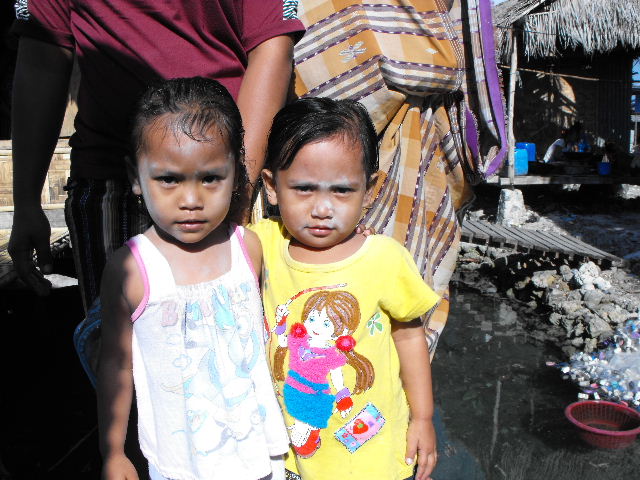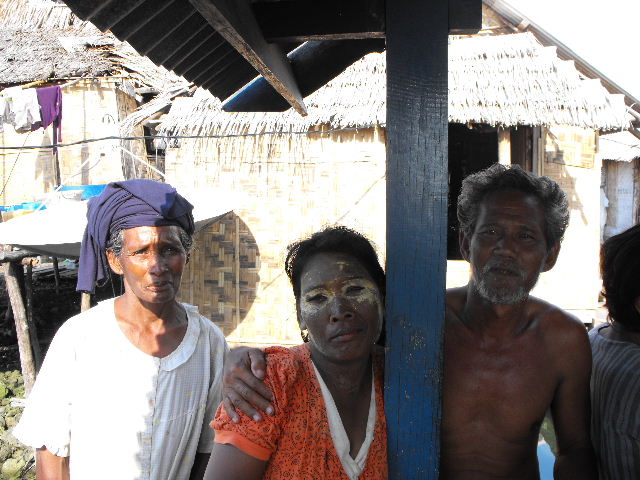An accident of birth

CuriousOyster
Steve & Trish Brown
Fri 19 Aug 2011 09:24
|
There have been a number of occasions on this trip
when Trish and I have realised how lucky we were that by an accident of birth we
were born in a country with good healthcare, education, enough food to eat and
family with enough money to do more than put a roof over our heads and food on
the table.
In a number of countries we have seen for ourselves
families that do not have access to these essentials that we in the west
take for granted.
In Morocco, the San Blas Islands, any number of
tiny islands in the Pacific and now here in Indonesia we have seen people who
live on the very limits. Nowhere has this been more evident than with the Bajo
people who live across the thousands of islands in SE Asia.
A semi nomadic group who live in stilt houses built
over reefs and survive on what they catch from the sea.
  This village on the edge of Kaledupa in the
Wakatobi group is typical of the way the Bajo live. They do not speak Bahasa,
the Indonesian language
but have their own language that is spoken by the
Bajo throughout the region.
  Despite what we see as a hard basic life, the
villagers and as always, the kids were happy, welcoming and fun. They are happy
to accept any old clothes, etc that we can give but wanted to sell us some of
their food, handicrafts and lobster as they need cash to buy from the local
village the things that they cannot get otherwise.
  We went ashore with friends Alan and Noi (Noi is
wearing a Bajo hat in the previous photo) and were surrounded by the villagers
as we walked through the houses raised about 6 feet above the sea. There were a
number of children who had lost parents in the Boxing Day Tsunami.
  We had given a number of the women old clothes when
they had come out to the boat in the dugout canoes so had taken books, pens and
pencils with us to hand out to the children.
  The houses are joined together by walkways built
above the sea and the kids play along these walkways as most kids would play in
the park. As numbers increase more houses are built along the edges of the
village and are yet to be connected with walkways.
  It was a very humbling experience to spend time
with these people, realise how lucky we are in the developed countries and also
how little we value the things that are most important. As we left the village
we passed an older woman with two small kids in a conaoe laden with drinking
water from the village on the main island. The women go each day to fetch fresh
water to the Bajo village, again a basic essential for life that we take for
granted. She asked us if we had any old clothes and we managed to get across to
her that we had some on the boat and to come out the following day. In the event
the next day gave us 20kts+ winds and choppy seas. Despite this she paddled the
2 miles from the village in a very old, decrepit dugout canoe that kept shipping
water, one of them was bailing furiously, and all for our old cast off
clothes!
 |